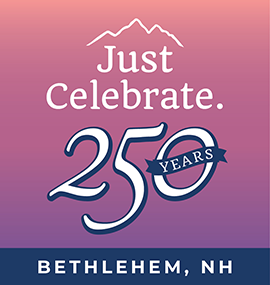08/18/2020 TSC Minutes
TOWN OF BETHLEHEM
2155 Main Street
Bethlehem, NH 03574
Bethlehem Transfer Station Committee
Bethlehem, NH
Minutes of the Meeting
August 18, 2020
Note: Hybrid Meeting – in person at Town Hall and virtual via “Zoom”.
Committee members participating: Nancy Strand (host), Barry Zitser, Chris Jensen, Andrea Bryant, Carolyn from Grow Compost (?)
As the meeting began, Chris Jensen reported that he shared a copy of the Bethlehem Transfer Station Contingency Plan with Mr. Barry Normandeau of Normandeau Trucking, who said that the Transfer Station Committee deserved kudos for doing an excellent job. Barry Zitser shared the document with several people from the North Country Council (NCC) Roundtable.
Carolyn was introduced to the members of the Committee.
Barry Zitser told Carolyn that he had sent copies of the Contingency Plan to members of her company, and will send one to Carolyn personally. Andrea Bryant provided a brief history of the expansion of the Bethlehem Landfill over the years.
Barry introduced Carolyn, Account Manager, Grow Compost of Vermont, and explained that he got some basic information about the company from a list provided by CET.
Carolyn has worked in the field of solid waste for many years. Her passion is preventing waste in the first place.
Grow Compost is a husband- and wife- run composting business. Schools and businesses started asking if they could use the composting service. In 2012 Vermont passed a law passed in 2012 prohibiting food waste from state landfills as of 2020. Grow Compost now has customers all over Vermont, plus the Connecticut river Valley and Sunapee Valley. They work with public, private, and specialty schools (ski schools, cooking schools, etc); restaurants; grocery stores; and other businesses that create food waste.
How the program works: They do not work with communities, but do work with transfer stations where people self-haul their refuse. They provide as many totes as the transfer station needs. They do not work with individual homeowners. They do provide 48-gallon totes for property owners, homeowner associations, condo associations, hospitals, restaurants, and schools. These totes are emptied weekly. Grow Compost has two composting farms in Vermont and an on-farm anaerobic digester that makes renewable energy. The scraps get mixed with manure from the farm and it is turned into energy and “digestate” that goes back into the digester and farm operation. The program produces organically certified soil, food for chickens, and other products.
Grow Compost also provides educational materials and training that include what they do, how to do it, and what products come from the process.
The cost of the service is based on a variety factors depending upon needs of the community and customers.
Barry inquired if totes are rented. Carolyn explained that they are provided and have liners that are pulled out every week and replaced with a fresh one. The totes stay.
The charge for picking up tote is $26 per tote/per week, or less if there are more totes in one location. A full 45 gallon tote is usually is 200 to 250 lb. It can be more if its contents are very compact.
Chris asked if totes are bear-proof (recognizing that nothing is really bear-proof if it has food in it!). Because the totes are filled with food scraps, bears can be a problem. The totes must be securely protected from bears.
Chris asked about explaining this system to restaurants that may see this as an inconvenience. Carolyn said that restaurant refuse is more than 20% food scraps. Instead of putting them in a dumpster staff can put them into a tote for removal, perhaps making it possible for them to use smaller dumpsters and get once-a-week service. Also, they may feel good about being part of the waste solution.
Barry explained that yard waste is prohibited in landfills in NH. Grow Compost does not take yard waste. They do take meat and dairy scraps because their compost grows so hot.
Bethlehem is looking at a way to promote yard waste composting.
Carolyn will provide a lot of material from Vermont about reducing waste. She suggested that we might want to talk with local farmers who might be interested in starting a compost program on their land. Carolyn suggested that we talk to local farmers to see if anyone wants to start a composting business in our area.
Barry invited Carolyn to visit Bethlehem to see the current transfer station and landfill, and perhaps, our local brewery. He then asked if Grow Compost works with any breweries. She said that they do work with some and they have a program to collect liquids and take them to the anaerobic digester.
The Committee thanked Carolyn for her meeting with us and providing us with useful and interesting information. She then checked out of the meeting.
Nancy Strand asked if Andrea had had an opportunity to find out if Tim from Meadowstone Farm has any interest in taking our food compost. Andrea will follow up.
Barry began the discussion about the free signs that we may be able to get free from New Hampshire the Beautiful (NHB). Availability is based on NHB having the funding to give out the signs. They may have both new and used signs available. He had sent a message about the signs that we might want to consider getting with our free credit. He thinks that, at this time, it is not a good idea to get anything that is too specific since we do not know when we might need them or what the needs might be.
Before we get signs telling people where to put each type of recyclable, we need to determine which plastics we will need to recycle. There are seven types, but we may only have a need for a couple of specific types. Barry will check with the NRRA to find out what they recommend.
Andrea asked about a sigh for textiles. Barry sees containers for textile donation along Rte 302 so isn’t sure we need to spend our credit on new one for the transfer station. We could get a used sign.
Mr. Brian Patnoe says that they separate aluminum and steel in Littleton because aluminum has a much higher value.
Nancy says there are a lot of good signs. She agrees with Barry’s suggestions are fine, as does Chris.
All that is necessary to get signs is to make our choices, decide whether they should be new or used and fill out the application.
Barry moved that we accept the choices of the following for the posters that we would like to recommend that the Board of Selectmen approve for ordering from NHB: paper #2, corrugated cardboard, aluminum cans, leaves and yard waste, (all new signs) and textiles (used sign). Nancy seconded. The motion was unanimously approved. Barry will coordinate the ordering with Chris.
On July 29 the NCC sponsored a roundtable discussion. Barry and Chris attended, as did Brian Patnoe from the Northeast Resource Recovery Association (NRRA). The roundtable had 3 ½ transfer station operators present. The half station was in a small seasonal town with a station that “was ungated, unmanned, and had a truck that needed cleaning”. One of the other transfer station operators is planning to change to a pay-as-you-throw plan. They have a lot of concern about what they are going to do going forward. Barry sent the other transfer station operators our Contingency Plan in case there is something in it that they can use.
There is a lot of concern about the expansion of the Bethlehem landfill because of the uncertainty of renegotiating contracts and transportation expenses that could arise at a time in a tough budgets year. Barry suggested to the operators that they might do as Bethlehem is doing and take this as an opportunity to look into Zero Waste initiatives, and other long-term environmental programs.
No station is covering its total costs for essential recycling. One transfer station covers about 75% of their costs with bags and charges. This is partially due to very bad recycling market.
Littleton has seen a 40% increase in solid waste in the March to June period and a 30% increase in construction waste in the same period. The other transfer stations also saw increases in the same period. Per ton tipping fee and transportation for Littleton is $89.03. Pemi-Baker’s tipping fee is $65~. The most shocking information is that the charge for single stream recycling at Casella is $165 per ton including transportation and processing costs because the sorting facility is in Massachusetts.
There will be another roundtable on August 19. Mr. Patnoe will be one of the speakers. Barry is planning to attend and Chris is hoping to attend parts of it, but has some conflicts.
The NH Department of Environmental Services (DES) will hold a public comment session on August 25 for comments about Casella’s desire to expand the landfill in Bethlehem. The meeting will be a hybrid of Zoom and in-person at the Elks Lodge. Speakers are limited to three minutes, but will be allowed to speak again after everyone has gotten a chance to speak once. People also can send in their comments.
The closing of the record (the end of the public comment period) is scheduled for September 8. DES should have all the information that they need at that time, but they can extend that date if they feel the need to do so.
The minutes of the previous meeting were approved unanimously.
Barry is going to go into the program for “plastic recycling by the numbers” to see if we can get a presentation or more information. He also reminded the Committee members that any member of the group can suggest programs and speakers that we might have at our meeting.
Next meeting will be on Tuesday, September 15, and will be a hybrid of in person from Town Hall and Zoom.
We are looking for more members for the TSC. Nancy said that she thinks it would be beneficial to have a teacher on the committee to provide guidance on educational programs that we will need.
The meeting was adjourned at 7:35 PM.

